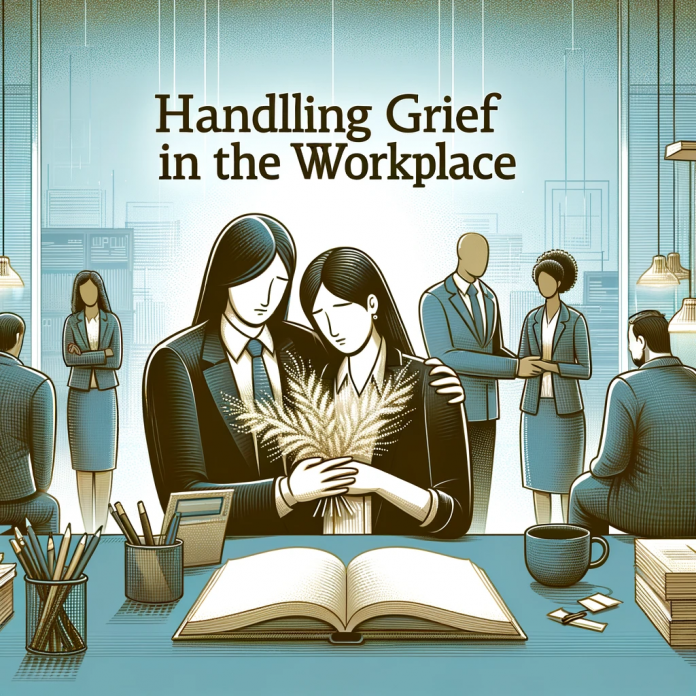Grief is a universal experience that affects people in unique ways. When it enters the workplace, it can be challenging for both the grieving individual and their colleagues. Understanding how to handle grief in the workplace is crucial for maintaining a supportive and productive environment.
Understanding Grief
Grief is a complex emotional response to loss, often associated with the death of a loved one. However, it can also be triggered by other significant life changes, such as divorce, job loss, or illness. It's important to understand that grief is not linear and does not follow a set timeline. Everyone experiences and processes grief differently.
Common symptoms of grief include sadness, anger, guilt, physical discomfort, and changes in appetite or sleep patterns. These symptoms can affect an individual's ability to concentrate, make decisions, and interact with others, which can significantly impact their performance at work.
Recognizing Grief in the Workplace
Recognizing grief in the workplace can be challenging, as individuals may try to hide their feelings or may not realize they are grieving. Some signs to look out for include changes in behavior, decreased productivity, increased absences, or difficulty concentrating.
It's important to approach the situation with empathy and understanding. Remember, it's not about diagnosing or treating the grief, but about providing support and creating a safe space for the individual to express their feelings if they wish to do so.
Supporting a Grieving Colleague
Communication
Open and empathetic communication is key when supporting a grieving colleague. Let them know that you are there for them and that it's okay to talk about their feelings. However, also respect their privacy if they prefer not to discuss their grief at work.
Be mindful of your words. Avoid clichés like "everything happens for a reason" or "time heals all wounds." Instead, simply express your condolences and let them know you are there for them.
Flexibility
Offering flexibility can be a great help to a grieving colleague. This could mean allowing them to take time off, adjust their work hours, or work from home. Remember, grief can affect concentration and productivity, so these adjustments can help them manage their workload while dealing with their loss.
It's also important to be patient. Grief is a process, and it can take time for an individual to adjust to their loss and return to their regular work performance.
Creating a Grief-Friendly Workplace
Develop a Bereavement Policy
Having a clear and compassionate bereavement policy can help create a supportive environment for grieving employees. This policy should outline the amount of bereavement leave available, any flexibility in work hours or duties, and resources for emotional support.
Ensure that this policy is communicated to all employees and that managers are trained on how to implement it effectively and empathetically.
Provide Resources
Providing resources for grief support can be very beneficial. This could include access to counseling services, employee assistance programs, or grief support groups. Providing information about these resources can help employees feel supported and understood.
Additionally, consider hosting workshops or seminars on grief and loss. This can help all employees understand the process of grief and how to support their colleagues.
Conclusion
Handling grief in the workplace can be challenging, but with understanding, empathy, and the right resources, it's possible to create a supportive environment that respects the grieving process. Remember, everyone grieves differently, so flexibility and patience are key.
By recognizing grief, supporting grieving colleagues, and creating a grief-friendly workplace, businesses can help employees navigate their loss while maintaining productivity and morale.


-banner.png)





